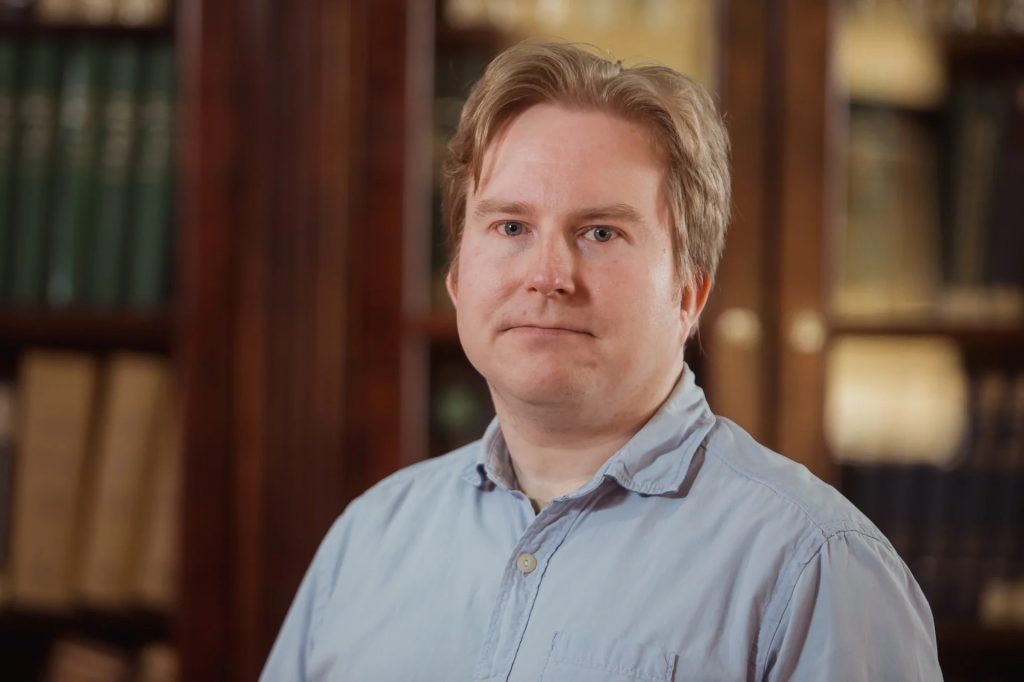Dr Jussi Auvinen will intern as part of the Ulam NAWA program

60 scientists from 26 countries who will visit Polish universities and research institutes received scholarships in this year’s Ulam NAWA program. We are pleased to announce that Dr Jussi Auvinen from the University of Jyväskylä in Finland will come to the Faculty of Physics and Astronomy.
Dr Jussi Auvinen will be analyzing matter interacting strongly, specifically whether the breakpoint – if it exists – leaves traces in the production and distribution of particles formed in heavy ion collisions. He will be studying it with Dr. Pasi Huovinen’s, the head of the Incubator of Scientific Excellence Center for Super Dense Fluid Simulation, team.
In the photo: dr Jussi Auvinen. Source: UWr
One of the main goals of contemporary heavy ion physics is studying the phase diagram and properties of dense matter interacting strongly. Of particular interest is the question whether in such conditions a phase transition, the so-called deconfinement of quarks from hadrons, turns from smooth to abrupt. Such phase transition conversion is related to the existence of the so-called critical point on the phase diagram. The task is very complicated due to the number of parameters. Because dynamic models of liquids contain not only parameters describing physical properties of a system but also many inner parameters, the so-called “parametric nuisances”.
Bayesian analysis, in the context of heavy ion physics, usually means not only the application of the Bayes’ algorithm, theorem in statistical analysis, but also using emulators of models. The first step of Bayesian analysis is producing hundreds of simulations with various combinations of free parameters. ‘This is “training data” used to construct an emulator of a statistical model based on Gaussian processes,’ explains dr Michał Marczenko from the Incubator of Scientific Excellence – Center for Super Dense Fluid Simulation, Faculty of Physics and Astronomy UWr.
